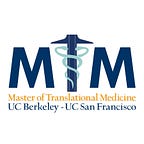UCB/UCSF’s Master of Translational Medicine Unveils New Therapeutics Track in 2024
To further catalyze the dynamic fusion of science and medicine, the Master of Translational Medicine program at the University of California, Berkeley (UCB) and the University of California, San Francisco (UCSF) is set to introduce an exciting new therapeutics track in 2024 to complement existing areas of medical devices and diagnostics. This groundbreaking initiative is poised to revolutionize the educational landscape by preparing students to seamlessly translate scientific discoveries into medical products, be it medical devices, diagnostics, drugs, or biologics. Students will be able to navigate all facets of translational medicine, including specific strategies to overcome barriers in the development of new drugs and biologics between them.
A Comprehensive Curriculum
The core of this new therapeutics track is a curriculum that will empower students to delve deeply into the world of translational medicine. While the program has a unified capstone course, students in the therapeutics track will receive specialized mentorship from experienced instructors, enabling them to tailor their education to their specific projects.
The curriculum includes diverse electives, encompassing a wide array of topics in molecular biology, cell therapy, drug delivery, and other subjects, available both at the Berkeley and UCSF campuses.
Setting It Apart
The new MTM therapeutics track differentiates itself from other programs by capitalizing on the vibrant entrepreneurial culture of the Bay Area. The program collaborates with accomplished subject matter experts in the industry who are at the forefront of their fields, offering invaluable insights and guidance. Moreover, the inclusion of industry professionals and investors as mentors and advisors will provide students with real-world perspectives and opportunities to work on cutting-edge projects.
One of the defining features of the program is its focus on translational medicine. It’s not a conventional master’s degree in bioengineering, biology, chemistry, or biochemistry; it’s a professional degree — the Master of Translational Medicine, emphasizing that it’s a specialization in its own right. The program’s uniqueness lies in its ability to bridge the gap between scientific discovery and medical innovation, making it a valuable asset in the world of healthcare.
Exciting Capstone Projects
Students pursuing the therapeutics track will have access to a range of capstone projects, emphasizing the commercialization of drugs and biologics, and designed to provide hands-on experience in translational medicine.
These projects can include learning how to progress from identifying potential drug leads to conducting preclinical testing and preparing for Phase 1 clinical trials, a vital step in drug development. Additionally, students can work on developing innovative drug screening platforms, streamlining the drug discovery process. They will also gain insights into the intricate process of preparing and writing applications for the FDA, a crucial skill in the pharmaceutical industry.
Unlocking Career Opportunities
The Master of Translational Medicine program is not just about education; it’s a stepping stone to a diverse array of career opportunities. Graduates of the therapeutics track can embark on paths that include medical school, pharmacy school, research and business development roles in biopharma companies, consulting, regulatory preparation firms, and even start their ventures. The unique combination of skills and experiences provided by the program ensures that graduates are well-equipped to excel in the rapidly evolving field of translational medicine.
The introduction of the 2024 therapeutics track in the Master of Translational Medicine program at UCB/UCSF heralds an exciting new era for aspiring translational medicine professionals. With an emphasis on real-world application, industry engagement, and a comprehensive curriculum, this program is an exciting vehicle for those seeking to make a profound impact on the intersection of science and medicine.
